 Most of the atheists who we encounter today will have styled themselves ‘New Atheists.’ Very little can be said in the way of distinguishing remarks between the New Atheists and the old atheists. Most New Atheists suggest that if you are outspoken about your atheism, you are thereby thought to be a New Atheists. The old atheists laid their hands over their mouths, cowering in fear of the religious monarchs. But that definition simply will not do. Consider the atheists of the Renaissance (most scientists and philosophers of the Renaissance were Christians, mind you) such as David Hume. He was certainly not quivering in the dark, afraid to write against religion. Was he a New Atheist or an old atheist? New Atheism is really just a definition that members of this sub-culture have applied to themselves. It is a fad, a trend, a style that will soon be dispelled. Christians have noticed a number of problems with some of the claims and counter-arguments that the New Atheists render. In this article, I will assimilate many of their signature arguments and construct the case against New Atheism.
Most of the atheists who we encounter today will have styled themselves ‘New Atheists.’ Very little can be said in the way of distinguishing remarks between the New Atheists and the old atheists. Most New Atheists suggest that if you are outspoken about your atheism, you are thereby thought to be a New Atheists. The old atheists laid their hands over their mouths, cowering in fear of the religious monarchs. But that definition simply will not do. Consider the atheists of the Renaissance (most scientists and philosophers of the Renaissance were Christians, mind you) such as David Hume. He was certainly not quivering in the dark, afraid to write against religion. Was he a New Atheist or an old atheist? New Atheism is really just a definition that members of this sub-culture have applied to themselves. It is a fad, a trend, a style that will soon be dispelled. Christians have noticed a number of problems with some of the claims and counter-arguments that the New Atheists render. In this article, I will assimilate many of their signature arguments and construct the case against New Atheism.
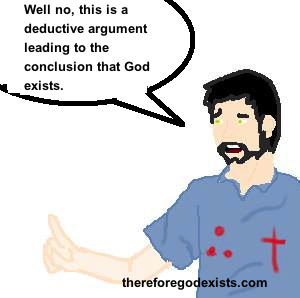 Of course, much of what they say and do comes down to rhetoric, one-liners and memes. Beyond these one-liners that I present, there is really no latitude. If one were to engage with a New Atheist about these issues, you will find that they are merely parroting what they have heard before. This is incomparable in many other disciplines, for there is often a thorough catalog of rebuttals and counter-arguments in various disciplines. But with the New Atheists, I can say confidently that the one-liners that I present exhaust their knowledge about that particular issue. They read a one-liner in a meme, and it sounds good so they just parrot it every time one of these issues comes up. The case against New Atheism, then, seems to entail a lack of intellectual muscle.
Of course, much of what they say and do comes down to rhetoric, one-liners and memes. Beyond these one-liners that I present, there is really no latitude. If one were to engage with a New Atheist about these issues, you will find that they are merely parroting what they have heard before. This is incomparable in many other disciplines, for there is often a thorough catalog of rebuttals and counter-arguments in various disciplines. But with the New Atheists, I can say confidently that the one-liners that I present exhaust their knowledge about that particular issue. They read a one-liner in a meme, and it sounds good so they just parrot it every time one of these issues comes up. The case against New Atheism, then, seems to entail a lack of intellectual muscle.
 They do not know what the God of The Gaps Fallacy is. Natural theology is the field of study that seeks to infer the existence of God from the natural world. It might argue that if the universe had a beginning, then it must have had a cause. It might also argue that if there is a feature of the universe that is designed, then there must have been a designer. The New Atheists will hear this sort of argument, or indeed, any argument, and just start wailing, “God of the Gaps!” A God of the Gaps argument would be to infer the existence of God from some phenomena that we have not yet understood. We might say, “God is the cause of lightning. What else could explain such a thing?” Then when we find the explanation, that gap in our knowledge is closed and God is no longer necessary. The New Atheists often argue that every example of natural theology is guilty of this fallacy.
They do not know what the God of The Gaps Fallacy is. Natural theology is the field of study that seeks to infer the existence of God from the natural world. It might argue that if the universe had a beginning, then it must have had a cause. It might also argue that if there is a feature of the universe that is designed, then there must have been a designer. The New Atheists will hear this sort of argument, or indeed, any argument, and just start wailing, “God of the Gaps!” A God of the Gaps argument would be to infer the existence of God from some phenomena that we have not yet understood. We might say, “God is the cause of lightning. What else could explain such a thing?” Then when we find the explanation, that gap in our knowledge is closed and God is no longer necessary. The New Atheists often argue that every example of natural theology is guilty of this fallacy.
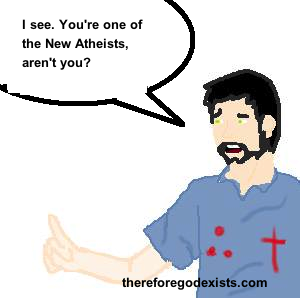 The problem is that they have just misunderstood the arguments from natural theology. In natural theology, God is not introduced as an explanatory hypothesis. Rather, the premises of the arguments lead to the conclusion that God exists. We are not saying that we cannot understand the natural world and therefore we must invoke God. Rather, we are saying that the existence of God is drawn out from the natural world by logical inference. This is a very important distinction. The former would be based on what we do not know. The latter is based on what we do know. But the New Atheists often do not want to hear this distinction. In his debate with Doctor Frank Turek, I posed a question (as a member of the audience) to the atheist David Silverman. I asked, “What is the difference between a God of the Gaps argument and a deductive argument leading to the conclusion that God exists?” Remarkably, Mr Silverman replied that there is no difference. This is the case against New Atheism. They just do not understand this distinction and do not want to hear about it.
The problem is that they have just misunderstood the arguments from natural theology. In natural theology, God is not introduced as an explanatory hypothesis. Rather, the premises of the arguments lead to the conclusion that God exists. We are not saying that we cannot understand the natural world and therefore we must invoke God. Rather, we are saying that the existence of God is drawn out from the natural world by logical inference. This is a very important distinction. The former would be based on what we do not know. The latter is based on what we do know. But the New Atheists often do not want to hear this distinction. In his debate with Doctor Frank Turek, I posed a question (as a member of the audience) to the atheist David Silverman. I asked, “What is the difference between a God of the Gaps argument and a deductive argument leading to the conclusion that God exists?” Remarkably, Mr Silverman replied that there is no difference. This is the case against New Atheism. They just do not understand this distinction and do not want to hear about it.
 They do not understand Christian theology. Atheists often congratulate themselves for their superior knowledge about the Bible and the various theories concerning Theology Proper, pneumatology, Christology, bibliology, hamartiology, angelology soteriology, ecclesiology, and eschatology. The problem is that if there is a New Atheist reading this, they probably have no idea what any of these ology’s mean, much less have read a sophisticated treatment of these doctrines. The New Atheists often have no idea what Christianity is. They were introduced to Christianity and assume that it is pervasively just as shallow as what they were introduced to. This will imbue them with a false sense of assurance and expertise about Christian belief.
They do not understand Christian theology. Atheists often congratulate themselves for their superior knowledge about the Bible and the various theories concerning Theology Proper, pneumatology, Christology, bibliology, hamartiology, angelology soteriology, ecclesiology, and eschatology. The problem is that if there is a New Atheist reading this, they probably have no idea what any of these ology’s mean, much less have read a sophisticated treatment of these doctrines. The New Atheists often have no idea what Christianity is. They were introduced to Christianity and assume that it is pervasively just as shallow as what they were introduced to. This will imbue them with a false sense of assurance and expertise about Christian belief.
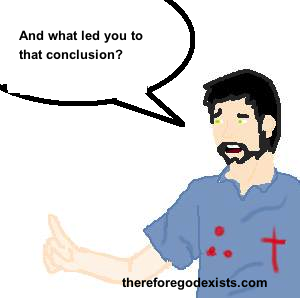 This is true even among the leading New Atheists. On page 57 of The God Delusion, Richard Dawkins writes, “Arius of Alexandria, in the fourth century AD, denied that Jesus was consubstantial (i.e. of the same substance or essence) with God. What on earth could that possibly mean, you are probably asking? Substance? What ‘substance’? What exactly do you mean by ‘essence’? ‘Very little’ seems to be the only reasonable reply… Splitting Christendom down the middle by splitting hairs – such has ever been the way of theology.” Professor Dawkins admits that he does not know what Christians mean when they say that Jesus is of the same substance with the Father. He apparently has not investigated any of the relevant literature, because if he had, he would have found an answer. It means that Jesus is God. If he is not of the same substance with the Father, then he is not God. Is Jesus the person to whom we direct our worship, pray to, and is he the one in whom we put all of our trust? Is this who Jesus is? Is he the only begotten God, at the right hand of the Father (John 1:18)? This is certainly not splitting hairs. It is the center of the Christian faith. But this accusation came because Professor Dawkins just does not know what he is talking about. He admittedly has no idea what Christians mean when they say that Jesus is of the same substance with the Father. This is the case against New Atheism. They do not understand Christian theology, and yet write critiques of it in their books.
This is true even among the leading New Atheists. On page 57 of The God Delusion, Richard Dawkins writes, “Arius of Alexandria, in the fourth century AD, denied that Jesus was consubstantial (i.e. of the same substance or essence) with God. What on earth could that possibly mean, you are probably asking? Substance? What ‘substance’? What exactly do you mean by ‘essence’? ‘Very little’ seems to be the only reasonable reply… Splitting Christendom down the middle by splitting hairs – such has ever been the way of theology.” Professor Dawkins admits that he does not know what Christians mean when they say that Jesus is of the same substance with the Father. He apparently has not investigated any of the relevant literature, because if he had, he would have found an answer. It means that Jesus is God. If he is not of the same substance with the Father, then he is not God. Is Jesus the person to whom we direct our worship, pray to, and is he the one in whom we put all of our trust? Is this who Jesus is? Is he the only begotten God, at the right hand of the Father (John 1:18)? This is certainly not splitting hairs. It is the center of the Christian faith. But this accusation came because Professor Dawkins just does not know what he is talking about. He admittedly has no idea what Christians mean when they say that Jesus is of the same substance with the Father. This is the case against New Atheism. They do not understand Christian theology, and yet write critiques of it in their books.
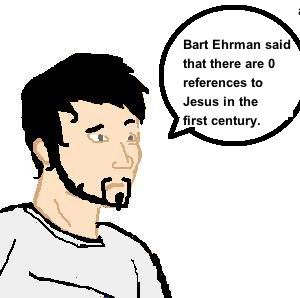 They do not understand Presuppositional Apologetics. I am no endorser of Presuppositional Apologetics. I rendered my critique of that method in my article Against Presuppositional Apologetics. But I have found that the most robust criticisms of this apologetic method, ironically, comes from Christians. Classical Apologists usually understand this method better than the New Atheists do and understand how to refute it. In their book Classical Apologetics: A Rational Defense Of The Christian Faith And Critique Of Presuppositional Apologetics, RC Sproul and other scholars offered the most compelling critique of this apologetic method that I have ever read. They demonstrated an understanding of this method, of which, quite frankly, the New Atheists are just bereft.
They do not understand Presuppositional Apologetics. I am no endorser of Presuppositional Apologetics. I rendered my critique of that method in my article Against Presuppositional Apologetics. But I have found that the most robust criticisms of this apologetic method, ironically, comes from Christians. Classical Apologists usually understand this method better than the New Atheists do and understand how to refute it. In their book Classical Apologetics: A Rational Defense Of The Christian Faith And Critique Of Presuppositional Apologetics, RC Sproul and other scholars offered the most compelling critique of this apologetic method that I have ever read. They demonstrated an understanding of this method, of which, quite frankly, the New Atheists are just bereft.
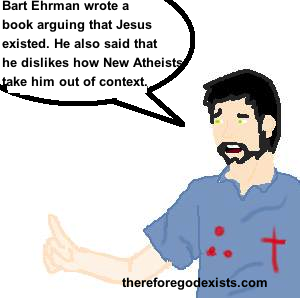 Presuppositional Apologetics makes the argument that if one does not presuppose the existence of God as the foundation for their reasoning, then they have no foundation at all and have to borrow from the Christian worldview. In response to this, the New Atheists will usually argue that they know that their noetic capabilities work because they can test them. In his debate with Sye Ten Bruggencate, this was basically the counter-argument that Matt Dillahunty offered. This is the counter-argument that most New Atheists offer in response to the presuppositional method. Of course, this misses the point. The presuppositional apologist is not arguing that atheists have no reasoning capacity. They are arguing about the ontological foundation for their reasoning capacities. The case against New Atheism is that they are offering an epistemological answer to an ontological question.
Presuppositional Apologetics makes the argument that if one does not presuppose the existence of God as the foundation for their reasoning, then they have no foundation at all and have to borrow from the Christian worldview. In response to this, the New Atheists will usually argue that they know that their noetic capabilities work because they can test them. In his debate with Sye Ten Bruggencate, this was basically the counter-argument that Matt Dillahunty offered. This is the counter-argument that most New Atheists offer in response to the presuppositional method. Of course, this misses the point. The presuppositional apologist is not arguing that atheists have no reasoning capacity. They are arguing about the ontological foundation for their reasoning capacities. The case against New Atheism is that they are offering an epistemological answer to an ontological question.
They often say that it is possible for things to pop into being, uncaused, out of nothing. Throughout the generations, Christians have debated with atheists about whether the universe is eternal. Christians have classically argued that it must have had a beginning, and atheists have argued that it did not have a beginning, that the universe has always existed. This theological incentives for this are obvious. For if the universe had a beginning, the obvious question is where it came from. The cause cannot be attributed to a natural cause, for nature began at the Big Bang. Well, in recent years, most atheists have come to accept what Doctor PCW Davies has said, that “The universe can’t have existed forever. We know that there must have been an absolute beginning a finite time ago.”
But they have conjured up a new objection. They think that some things can just pop into being, uncaused, out of nothing. Among these things would be universes. Quantum physics, the New Atheists will argue, demonstrate that this is possible. This has been popularized by Doctor Lawrence Krauss’s book A Universe From Nothing. However, in the most recent preface to his book, Doctor Krauss admitted, “When we ask, ‘why is there something rather than nothing? We really mean, “How is there something rather than nothing?” Krauss is only interested in the scientific question, not the philosophical question. The quantum vacuum is irrelevant to this question. That is because, as Doctor David Albert (a non-believer who has a doctorate in Quantum Mechanics) pointed out in his review of Krauss’s book published by the New York Times, the quantum vacuum is not nothing. The quantum vacuum is a sea of fluctuating energy. It is sort of like a fingers coming forth from a fist. Further, there are causal theories of the quantum vacuum. The mistake here is to conflate an acausal event with an undiscovered cause. The case against New Atheism is that they think that it is possible for things to pop into being, uncaused, out of nothing.
Their position about the historical Jesus exposes them. It is important to try to be charitable with people. I do not want to assume that anybody has hidden motives. I like to assume that even those with whom I am debating do not have any sort of axe to grind. But when atheists go against the grain of all contemporary scholarship and just keep asserting the same one-liners, my charity begins to dwindle. New Atheists often take the position that the historical person, Jesus of Nazareth, never even existed. But this would stand in contrast with even the most radical liberal skeptical scholarship. Even the Jesus Seminar, which is no friend of Christian orthodoxy, maintains that Jesus existed. The atheist New Testament scholar Doctor Gerd Ludemann thinks that certain facts about the life of Jesus are historically indisputable. It is quite rare of a scholar to make such a claim, much less an atheist scholar about facts concerning the New Testament. Thus Doctor Bart Ehrman, who, likewise is no friend of Christianity, published a book titled Did Jesus Exist? which is really just an attack on Christianity, but he did expose the errors of the New Atheists who suggest that Jesus never existed.
The portrait of the historical Jesus is rich with historical data and events. New Atheists often think that the gospel records do not count, because they are just theological texts. But they are more than merely theological texts. Historians will treat the writings of the New Testament as historical data. The gospels are historical biographies, and the letters of Paul are real letters that he sent out to the church. The task of the historian is to determine what belongs in the portrait of the historical Jesus. Consider the ‘Son of Man,’ sayings that are attributed to Jesus. These are unlikely to be a fabrication, because nobody in the early church applied this title to Jesus. This leads scholars to think that this Son of Man title authentically belongs to the historical Jesus. But the New Atheists have no idea how to approach history or handle this sort of data. The only thing they know how to do is to shout “Myth!” no matter what, at all costs. The case against New Atheism is in their radical denial of the historical Jesus.
They do not know Christ. The most prudent, practical, and applicable question that a person can answer is, “What do you say about Jesus Christ?” He is God the Son, of the same substance with the Father. He has been in perfect holiness, love and unity with the Father from eternity (John 1:1, 17:5). Yet he emptied himself of all repute and became nothing, taking on the form of a slave and subjected himself to the worst form of capital punishment that men have ever concocted – death on a cross (Philippians 2:5-8). You have no doubt heard, “Jesus died for our sins.” We do not mean that because of the beatings, whips, nails, that our sins are forgiven. We mean that on the cross, Jesus Christ absorbed the wrath of the Father. He paid the penalty that we deserve. He died in the place of his people – our unrighteousness was nailed to the cross so that his righteousness could be given to us (Colossians 2:14).
Accordingly, we are saved for one reason. It is not because we are so righteous that we have made God our debtor. It is not because we have performed some outward act of righteousness or performed the ceremony of water baptism. We are saved because on the cross, Jesus Christ died for our sins and his perfect righteousness is imputed to us (Romans 3:25). It is now as though we have committed no sin. Our stain before a righteous God has been removed (Romans 4:5). The case against New Atheism is that it is a desperate labor to depart from the glory of the Son of God, a maniacal flailing of the arms in response to the free gift of eternal life (Romans 6:23). It is the exemplar of the precious words, “The light shines in the darkness, and the darkness did not comprehend it.” (John 1:5).
If you would like to get in on the discussion about this, join my Theology Discussion Group!